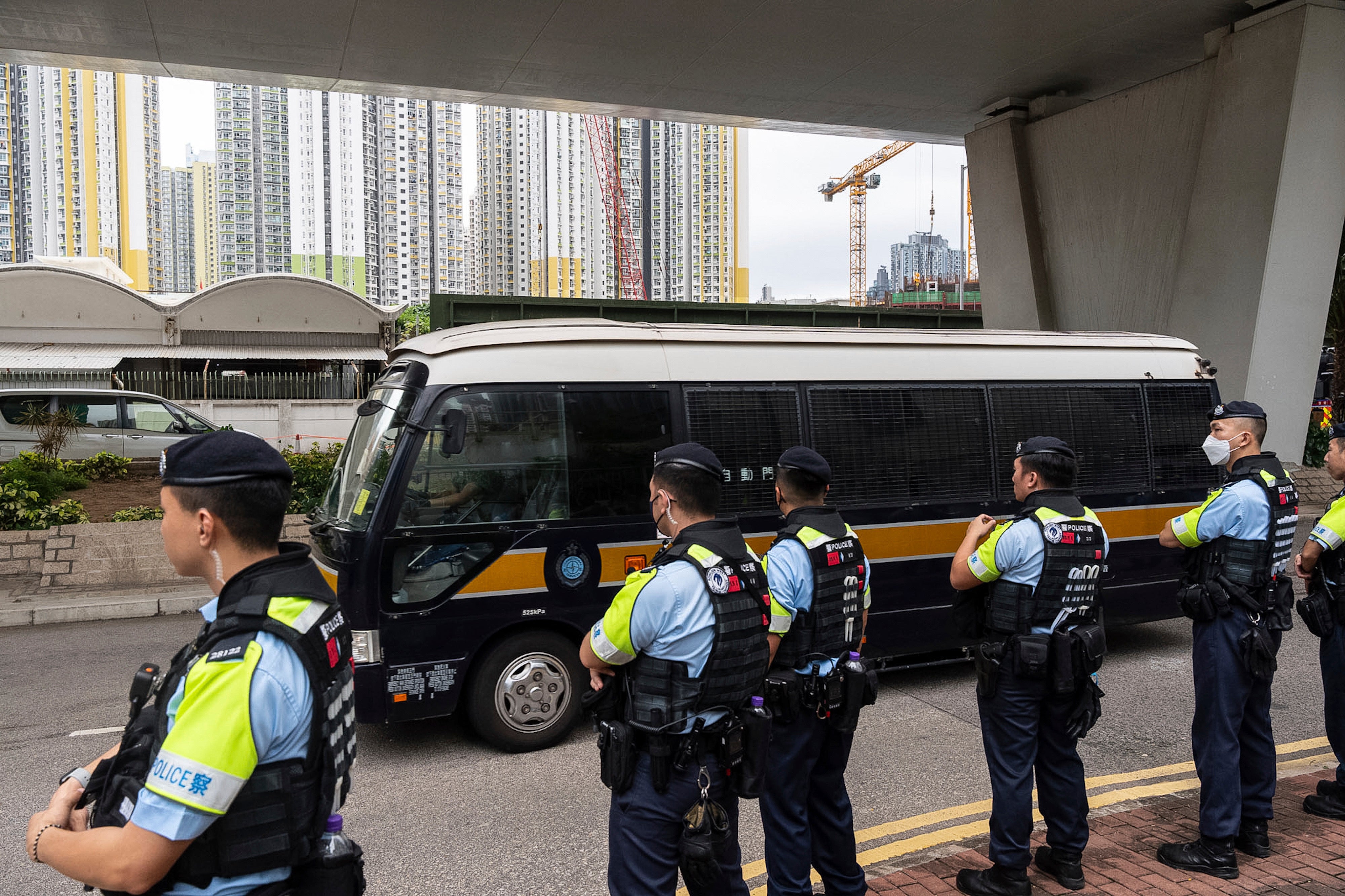US plans to impose new visa restrictions on Chinese and Hong Kong officials after security verdicts
The United States has expressed its deep concerns about the convictions of 14 pro-democracy activists in Hong Kong under a Beijing-imposed national security law

Your support helps us to tell the story
From reproductive rights to climate change to Big Tech, The Independent is on the ground when the story is developing. Whether it's investigating the financials of Elon Musk's pro-Trump PAC or producing our latest documentary, 'The A Word', which shines a light on the American women fighting for reproductive rights, we know how important it is to parse out the facts from the messaging.
At such a critical moment in US history, we need reporters on the ground. Your donation allows us to keep sending journalists to speak to both sides of the story.
The Independent is trusted by Americans across the entire political spectrum. And unlike many other quality news outlets, we choose not to lock Americans out of our reporting and analysis with paywalls. We believe quality journalism should be available to everyone, paid for by those who can afford it.
Your support makes all the difference.The United States on Friday expressed its deep concerns about the convictions of 14 pro-democracy activists in Hong Kong under a Beijing-imposed national security law, saying it's taking steps to impose new visa restrictions on mainland Chinese and Hong Kong officials responsible for the implementation of the sweeping legislation.
U.S. State Department spokesperson Matthew Miller called for the release of the detained activists a day after the United Kingdom made a similar appeal following the landmark verdicts on Thursday.
“The defendants were subjected to a politically motivated prosecution and jailed simply for peacefully participating in political activities protected under the Basic Law of Hong Kong,” Miller said in a statement. The Basic Law is the city's mini-constitution.
He didn't provide more details about the looming visa restrictions and who they would target.
The democracy advocates were among 47 activists who were charged in the city's biggest national security case to date. Prosecutors had accused them of attempting to paralyze Hong Kong’s government and topple the city’s leader by securing the legislative majority necessary to indiscriminately veto budgets.
In convicting them, three judges approved by the government to oversee their case said their plan to effect change through an unofficial primary election would have undermined the government’s authority and created a constitutional crisis. But they acquitted two others who also pleaded not guilty, because they were not sure if the pair had the intention to subvert the state's power.
The 14 activists, along with the remaining 31 others who pleaded guilty earlier, would be sentenced at a later date.
The mass prosecution of the 47 activists dealt a heavy blow to the city's pro-democracy movement following huge anti-government protests in 2019. Critics said that it illustrated that Beijing's promise to retain Hong Kong's Western-style civil liberties for 50 years when the former British colony returned to Chinese rule in 1997 was becoming increasingly threadbare.
Miller urged the Chinese and Hong Kong authorities to uphold Hong Kong's judicial independence and cease the use of vague national security laws to curb peaceful dissent.
After Beijing imposed a national security law in 2020, the U.S. has already imposed sanctions against some Hong Kong and mainland Chinese officials for undermining Hong Kong's autonomy, including then security minister and current city leader John Lee.
But both Beijing and Hong Kong governments insisted that the law helped bring back stability to the city.
Chinese Foreign Ministry spokesperson Mao Ning said that the central government firmly supports the law enforcement and judicial authorities of Hong Kong in punishing all kinds of acts that undermine national security.
She expressed China’s opposition to other countries that “smear and undermine” Hong Kong’s rule of law.